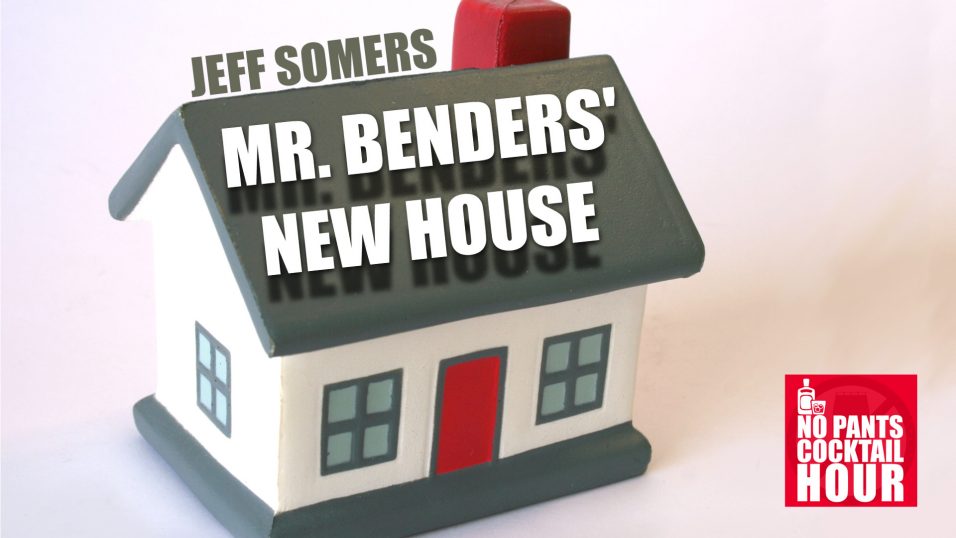As you may or may not be aware, I have a little podcast called The No Pants Cocktail Hour where I discuss a short story I wrote while drinking some delicious whiskey and then read the story with some half-assed production (sound effects, etc). It’s fun! And, I hope, interesting to both folks who write professionally and those who aspire to write professionally.
The most recent episode focuses on a story I published back in 2007, Mr. Benders New House. It’s an unusual story for me, and I’m quite proud of it. If you’re curious about it (or why I’m proud of it) you can listen to the podcast, natch. But something that stuck me while recording this episode might be useful to other writers. Because something I see a lot of is young writers who worry a lot about how their work will be received. Whether they’re good enough, whether they have the right to use a certain POV, whether a subject or plot device has been over done.
Mr. Bender’s New House reminded me that those are all concerns for after you’ve finished the story. Step One is write the damn thing. Step Two is worry about whether it’s good, or if you didn’t pull it off, or anything else.
In other words, when it comes to first drafts, write like no one is reading.
Future You’s Problem
It’s kind of vital to remember that on the privacy of your own screen or your own notebook page you can write anything. No one ever needs to know about it, or read it. That’s incredibly freeing, and you should run with that.
That means working on an idea you’re not comfortable with, or you’re not sure you can pull off. Maybe it’s a romance, and you think of yourself as a hardboiled crime writer. Maybe it’s deeply personal and reveals ugly truths about yourself. Whatever it is, the rule of thumb is that if it scares you it’s worth writing about — but it’s important to keep in mind that when you’re working on a draft it’s just for you. It’s private. There’s no law that says you have to publish it, or show it to Beta readers, or put it into a blog post.
In fact, it’s often helpful to assume you won’t show it to anyone. Tell yourself this is just an exercise, for your eyes only. Then go to town. Write about your darkest fears or desires. Reveal yourself. Try crazy literary experiments. Try whatever the hell, because when you’re done you can just tuck it away. Or destroy it, if that’s your jam. Or put it out there if you feel good about it.
In Mr. Bender’s New House, I tried a kind of subtle trick, and I wasn’t sure it would work. Or that anyone would notice. If I’d thought about it while writing I probably would have given up. I probably would have decided it wouldn’t work, or I’d make a fool of myself trying to be a kind of writer that I’m not really. But I finished that story, and I sold it, and it was published, so I did something right, although it’s possible I still failed at what I was trying to achieve. If I’d given in to the worry, I wouldn’t have that story today.
The key is to not let worry over its reception stop you from working on it. Just write as if no one will ever see it. If Future You decides differently, that will be their problem, not yours.
Of course, this can be applied to any creative activity. Or non-creative activity. The one thing I’d advise is never apply this to dancing. Don’t cance like no one’s watching. ONe thing I’ve learned is that someone is always watching.


This is got me thinking about the very known books that published after the writer died or he/she was writing it without a desire to publish it
And the people whom write while they are not writers
It’s really so true …
Thank you